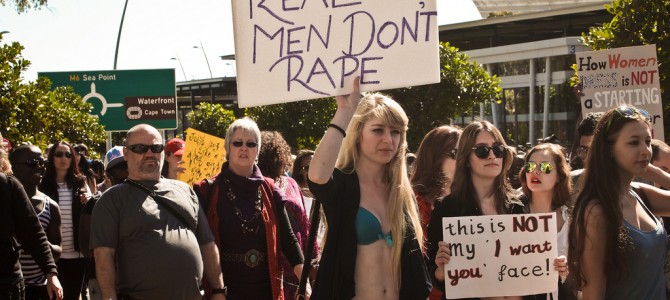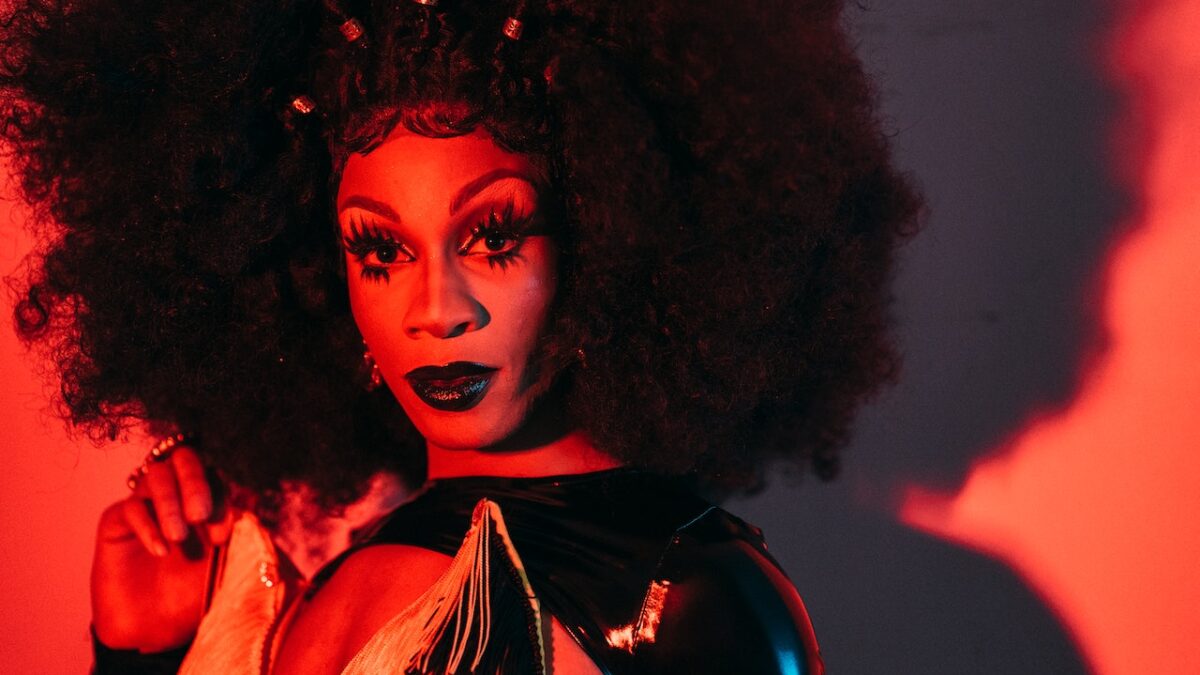
Cathy Young has an in-depth report in The Daily Beast exposing the latest highly publicized dubious accusation of rape—following quickly on the heels of the University of Virginia saga and Lena Dunham’s tale about being taken advantage of by a mystery campus Republican who seems to have no counterpart in the real world.
You may also have heard about Columbia University student Emma Sulkowicz. As a “performance art” project—and that’s a red flag if ever I saw one—she has been lugging around campus the mattress on which she claims another student raped her, as a symbol of the psychological burden she bears as a victim. She has declared that she will keep carrying it until her attacker is pressured into leaving the university. For this, she has been profiled sympathetically in national publications and invited as a guest to the State of the Union Address by Senator Kirsten Gillibrand, who has made a political crusade out of the supposed “epidemic” of sexual assault on college campuses.
Cathy Young simply allows the accused man in this case, long since outed as Paul Nungesser, to tell the story from his own perspective, with Young verifying his facts—a novel approach to journalism, I know. The results look pretty bad. A university hearing already thoroughly examined the case using a relatively low standard, looking for a “preponderance of evidence” rather than seeking to establish Nungesser’s guilt beyond a reasonable doubt. Yet they found Sulkowicz’s testimony not to be credible and cleared Nungesser of the charges. Two women who had been pressured to file corroborating accusations withdrew their testimony. Among the evidence are gushingly friendly messages sent to Nungesser by Sulkowicz for months after the supposed rape, asking for a “paul-emma chill sesh” to “talk about life and thingz” (be kind; the argot of your youth probably sounded just as insipid) and declaring, “I love you Paul.” When he complains that a party he’s hosting has too many guys, she promises to “be der w da females.” It’s an odd thing to offer to procure women for a party hosted by your rapist.
The safe route for journalists is to say that maybe something really did happen and nobody can really know. But given that Nungesser was officially cleared by Columbia in a hearing that was pretty much primed to find him guilty, I think we’re entitled to say that Sulkowicz’s claim didn’t hold up.
The giveaway, really, is that she decided it would be “too draining” to pursue the case with the police—and then she literally carried a mattress around with her for more than a year and made a public spectacle of her victimhood. I suspect that the only burden she really feared was the burden of proof.
As for the defense that “there is no such thing as the perfect victim”—well, could we at least have a halfway decent victim, one who acts in any way as if she has been victimized? The mantra that “there is no perfect victim” is used, not to explain away a few discrepancies in the alleged victim’s account, but to explain away all of them. Its actual meaning is: there is no such thing as exculpatory evidence for the accused.
Again, Sulkowicz gives the game away. Here is her response to Young’s article:
“It’s an awful feeling where this reporter is digging through my personal life. At this point I didn’t realize that she’s extremely anti-feminist and would do this in order to shame me,” Sulkowicz said, noting that she feels Young has “written other articles supporting the rapists and making survivors look unreliable.”
The links to those “other articles” are to another case where there was strong exculpatory evidence in favor of the accused, which was ignored in campus proceedings—and to an article about the UVA rape hoax, which is now widely acknowledged as a complete fabrication.
But you can see the standard at work here: the only people qualified to report on the issue of rape are those with the right ideological commitments who agree never to report the accused man’s side of the story. I can see why Sulkowicz might want to establish such a standard. I just can’t see why the rest of us would agree to go along with it.
As Caroline Williamson concluded in an op-ed for the Columbia student newspaper, “The mistake we’ve all made has been substituting belief in an ideal with certainty about a specific case. There was never enough evidence presented to the public to expel Nungesser from school or convict him in court, so there should not have been enough to convict him in the media.”
Aside from the damage done to young men who are falsely accused, this is yet another disaster for actual rape victims, who are continually being “represented” in the public debate by dubious “victims” who are seeking attention or self-promotion. One of the worst things about the University of Virginia case, for example, was that it completely eclipsed news reports about an actual serial rapist and murderer stalking Charlottesville, who was responsible for the deaths of two students in the area, Morgan Harrington and Hannah Graham.
When accusers can receive attention and adulation for their bravery while having to do nothing to prove their case and actively being shielded from any scrutiny, this is an engraved invitation for those who, for whatever reason, are seeking attention and sympathy for a trauma they never suffered. And those with the most garishly embellished tales—gang rape on a bed of shards of broken glass!—or those who are most eager for public attention will tend to rise to the top.
This does enormous damage to the cause they nominally represent. The immediate beneficiary of these cases is probably Bill Cosby, who has had dozens of women come out accusing him of drugging and raping them, with corroborating testimony, and who continues to insist that they are all making it up. The damaged credibility of fake victims tends to undermine the credibility of real victims.
But here’s what’s interesting about Sulkowicz’s case. If we strip away the ideological claims and go back to the evidence (also see Cathy Young’s report on the case at Brown University), it fits a pattern. These are cases where two young people have an existing sexual relationship, usually one that’s “casual” or on-again, off-again. They sleep together and the young woman acts, for a while, as if everything is fine and they’re still friends. But later she comes to decide that she was raped.
The key is the dubious notion that the young woman somehow figured out, some time after the fact, that she was assaulted. We get lines like: “Natalie did not come to see her relationship with Nungesser as abusive, or their sexual relations as non-consensual, until ‘months after their breakup.'” Or: “some women do not even realize they have been abused.” Coercion is physical force. It is blunt, it is physical, it is perceptual. Would you know it if you were being mugged? But what is being described here is having negative feelings about something in retrospect, and there’s a very different word for that: regret. What these women are really expressing is regret for sexual encounters they wish they had not engaged in.
I have observed before the weird juxtaposition on campuses of a flamboyant, baroque version of the Sexual Revolution—alongside a strict neo-Victorian prudery advanced under the banner of feminism. But perhaps it’s not a contradiction. Perhaps the one phenomenon is an answer to the other. Dubious claims about “rape culture” are an attempt to create an all-purpose scapegoat for the emotional dark side of promiscuity.
College campuses have long since been taken over by a culture in which casual sex with acquaintances is considered normal and where slightly outré sexual experimentation is strongly encouraged, all of it spurred on by alcohol, which figures prominently in most of these cases. But it’s clear that some young women are not psychologically prepared for this. They have casual relationships and hookups, but then feel regret and emotional trauma when the experience ends up being emotionally unsatisfying or disturbing. Then they are encouraged, by the feminists and “rape culture” activists, to reinterpret the experience as all the fault of an evil man who must have coerced them.
It’s a system which systematically preys on and exploits the emotional vulnerability of young women in order to use them as publicity fodder for an ideological agenda.
Follow Robert on Twitter.









